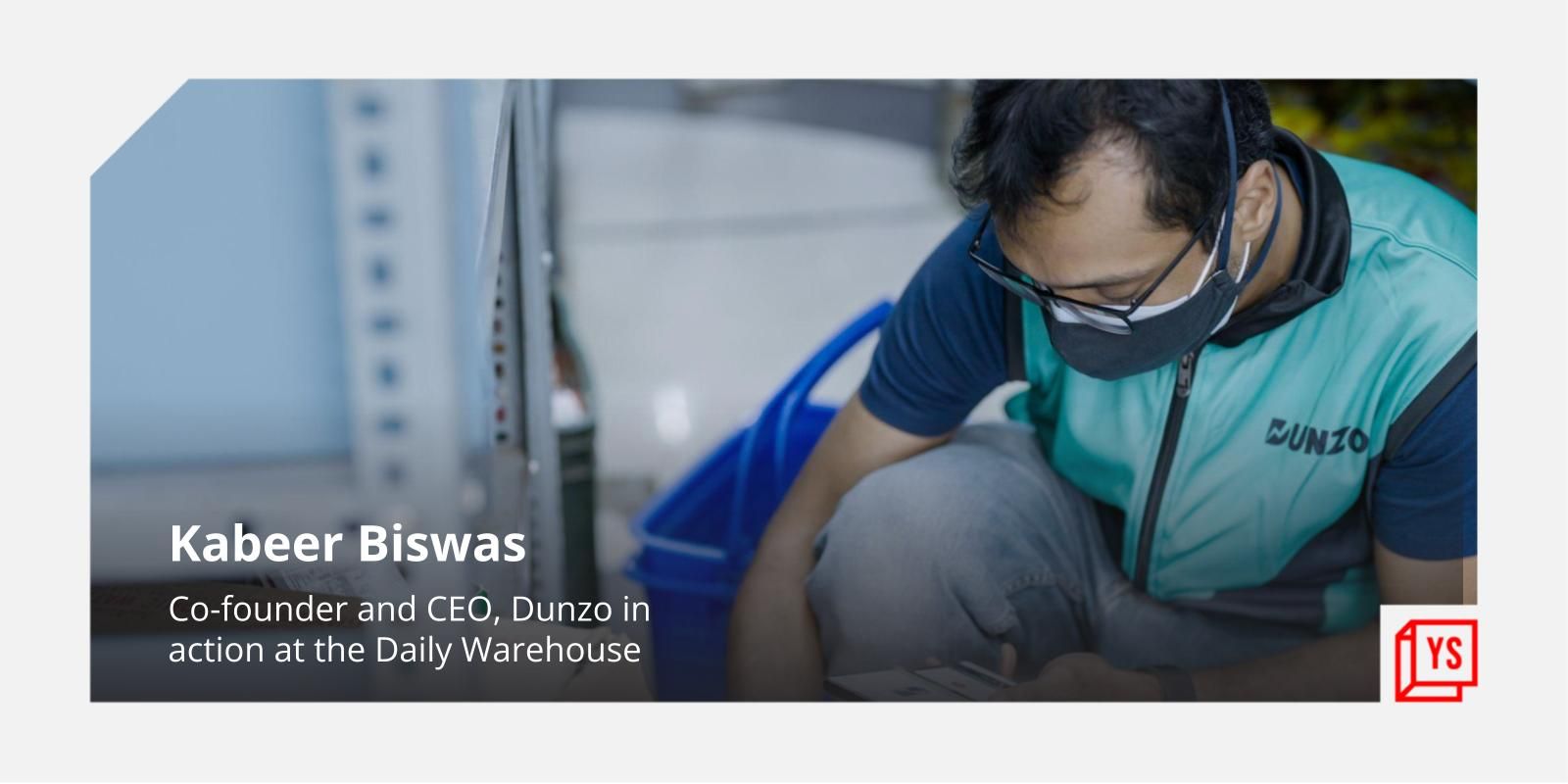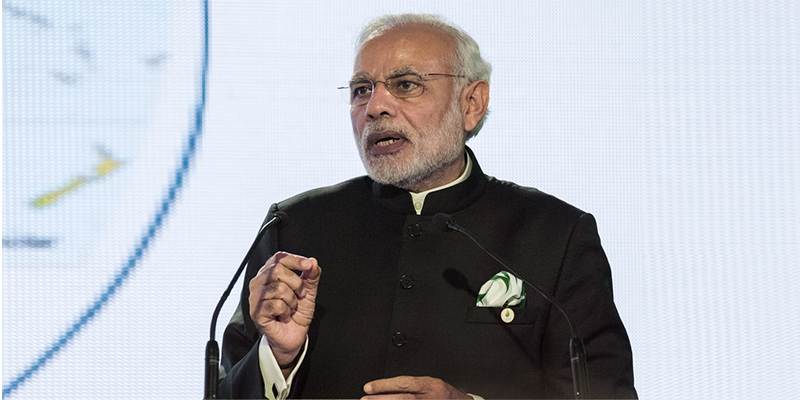Eyeing an IPO in 2-4 years, here’s how Dunzo aims to grow 3X with Reliance Retail investment
In conversation with YourStory, Kabeer Biswas, Co-founder and CEO, Dunzo, talks about how the Reliance Retail partnership plans will pan out for the hyperlocal soonicorn and the quick ecommerce startup’s IPO plans.
Quick commerce startup has been in the news for its latest $240 million funding at the valuation of $775 million, led by Reliance Retail. The retail giant pumped in $200 million for a fully diluted stake of 25.8 percent in the soonicorn.
Speaking about the funding, Kabeer Biswas, Co-founder and CEO, Dunzo says, “It is hard to pinpoint how the first conversation took place, as fundraises, are a whirlwind that you cannot remember much about later. Where we are going with it is important. There are two ways in which we look at the way forward for Dunzo and this strategic partnership.”
Elaborating, Kabeer said the team is looking at a public listing in 24 to 48 months. “We were looking forward to a partnership that would allow us to be able to do that, and we have been able to agree and work very closely with the Reliance team towards this goal.”

Founders of Dunzo- Dalvir, Mukund, Kabeer, and Ankur
He added that retail is one segment with multiple players looking at numerous different models, and the team believes that the Dunzo-like hyperlocal model should get a public listing. He added the startup is also looking at a 3x growth in this calendar year.
But does this mean the business will need to shift gears internally? Kabeer said the next 24 months will be focused purely on scaling the business further.
“With credit to everyone who went public in 2021, we realise they were able to go in, tap into a market sentiment, and also change the narrative. Now internet businesses can go ahead and find growth over multiple years. For them to be able to find that growth, it is okay to keep deploying in growth over a period of time. The adjacent markets can look significantly different from what traditional business looked at.”
The Dunzo team will focus on growth and scale, whatever market conditions and growth opportunities they witness.
The funding will also be used to further Dunzo’s vision of becoming the largest quick commerce business in the country, enabling instant delivery of essentials from a network of micro warehouses while expanding its B2B business vertical to enable logistics for local merchants in Indian cities.

Kabeer Biswas, Co-founder and CEO, Dunzo on delivery rides
Dunzo and Reliance Retail will also enter certain business partnerships.
Dunzo said it will enable hyperlocal logistics for retail stores operated by Reliance Retail, further adding to Reliance Retail’s omni-channel capabilities. It will also facilitate last-mile deliveries for JioMart’s merchant network.
While the exact steps of these plans are yet to be unfurled, Kabeer said the business has two large segments that the team will focus on for the next 24 months:
Dunzo Daily
Dunzo launched its instant delivery model Dunzo Daily’ in Bengaluru earlier last year, and it is seeing over 20 percent week-on-week growth. This model delivers daily and weekly essentials within 15-20 minutes, with a focus on providing high quality fruits and vegetables.
“It works on the quick commerce model - the warehouses are located in a couple of kilometre radius of every urban Indian consumer, stocking the most important items they want, based on their purchasing behaviours and patterns. We focus on the quality and price of the products, ” Kabeer said.
The plan is to expand the quick commerce business to the top 15 cities in India, starting with Pune and Chennai by the end of this month, along with establishing more micro warehouses across cities where Dunzo currently operates.
The quick delivery startup has more than 20 warehouses in Bengaluru, with plans to scale up to 30 over the next couple of months.
“We believe that Reliance Retail has an existing supply chain that is really large; it allows us to go ahead, collaborate, and build massive efficiencies. It also helps accelerate the scale of the business,” Kabeer said.
The team believes growth in the Daily business will help increase their GMV to $2-2.5 billion, 10X more than $200-250 million the startup reported in October 2021.
The B2B business
The Reliance Retail-Dunzo partnership will also focus on the B2B business.
Kabeer said around 15 months back – when the team was building the B2C side of the business - they were creating a large fleet of delivery partners on the ground. Those delivery partners could, in turn, carry other traffic or goods.
“This is the second biggest business, and close to 10,000-odd merchants use it on a monthly basis. The vision is to democratise logistics for everyone. There is a delivery partner layer; we were the first customers for several merchants in several geographies. Once we found that density, we replicated the same model,” Kabeer said.
The Dunzo team is looking to hook this B2B layer with large retailer stores. “This reduces the cost of using this delivery layer for everyone. We believe this part of the business will grow 10X this year,” Kabeer said.
He added that the startup aims to be “significant market leaders in both these categories”.
What next?
The change in consumer mindset and behaviour has helped Dunzo grow considerably in the last few years. Online delivery of essential items emerged as a lifesaver during the pandemic, allowing customers to shop while maintaining required social distancing guidelines. This translated into significant growth for digital and hyperlocal businesses.
Dunzo, which started focusing on core customer needs before the pandemic, could ride this wave.
Anointed a soonicorn now, what does the tag mean to the startup? Will it translate into further expansion and growth?
“I don’t know if a valuation benchmark is right to look at how the market will grow. If you look at the macro aspects, we see a lot of opportunity. There are millions of customers equipped enough to go ahead and transact online, see value in doing this, and keep consistently coming back. And that is the opportunity - the millions of customers coming online and digitising their lives across the length and breadth of the country,” Kabeer said.
“This means there is a significant shift in user behaviour, and large companies will be created. Everything that is happening is because of this opportunity. We look at our business and that is what us hits us - the opportunity to build a massive and generational business.”
Edited by Teja Lele















